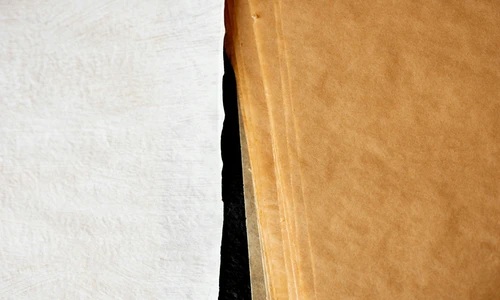Nothing Left Over
Paul reaches back into history and into Scripture to write an old law in a new way for the Corinthians.
For I do not mean that others should be eased and you burdened, but that as a matter of fairness your abundance at the present time should supply their need, so that their abundance may supply your need, that there may be fairness. As it is written, “Whoever gathered much had nothing left over, and whoever gathered little had no lack.”
The exact verse he quotes is from Exodus 16, when God sent manna and quail into the camp of Israel each morning and evening to sustain them in the wilderness:
But when they measured it with an omer, whoever gathered much had nothing left over, and whoever gathered little had no lack. Each of them gathered as much as he could eat.
It turned out, when people had gathered, whether a lot or a little, each had exactly enough for her family. The amount was so exact that, whenever they tried to leave some until the next morning, it immediately rotted. God intended them to eat all of it that day and get more the next.
If you’re a parent of children in the wilderness, and God has given you miraculous food, but your faith is not complete and you worry whether there will also be food tomorrow, a beautiful thing you might do is sacrifice your evening meal and go hungry to make sure there is food left over for your children to eat tomorrow. And if you did this noble thing, you would wake up in horror to see that you had gone to bed hungry for nothing: the leftover food was spoiled. This is a tragic image. But just as your children look to you, God intends for you to look to Him; He is the God and Father of all, and He will not let His children go hungry.
Paul draws an analogy for the first-century Corinthians. He claims that their abundance is like the abundance of the Israelites—God-given—and that anything that looks “left over” or “extra” is in fact intended for them to generously give to those who do not have enough, so that they re-enact Exodus where each person has enough and none has too much.
This voluntary sacrifice has the added benefit of making the Corinthians reliant on God for exactly what Jesus said to pray for: their “daily bread.” If you have storehouses of grain, you tend to rely on them for your bread; if you have only enough for today, you must rely on God’s provision for tomorrow.
So how do we apply Paul’s suggestion to the Corinthians to ourselves? Confession time! I have a retirement account and a refrigerator full of food1. Retirement accounts sound an awful lot like storehouses of grain2, and, God willing, I will still have that food tomorrow.
All of that seems pretty… extra… in the context of the Corinthians. And Paul says the Macedonians went beyond even that: out of their “extreme poverty,” they were nonetheless exceedingly generous.
Okay, then what do you and I do about it?
Christians have a rough relationship with money.
Sometimes God tells us to store up for the future, as with Joseph in Egypt, without whose planning ahead Jacob and his family would have died, and we wouldn’t have had an Exodus during which to gather quail and manna.
Sometimes Jesus tells us to sell all our possessions and give the money to the poor (Mark 10:17–31).
Let me be clear: I have no intention of trying to answer these questions in this VerseNote. But there’s a common thread across these stories that we can be sure God wants us to follow.
Here it is:
If you have abundance: out of that abundance, give generously to those who lack.
If you are poor: out of that poverty, give generously to those who lack.
And whether you are rich or poor, rely on God and not yourself for your daily bread, because your riches will, eventually, spoil, and your life may be required of you tonight.
This much is sure.



